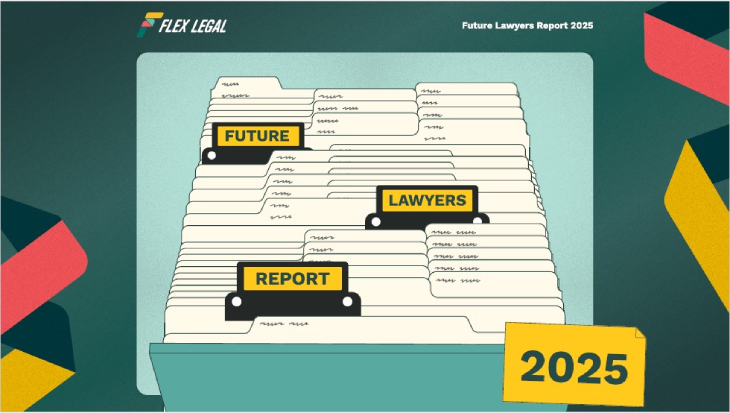

Salary has increased in importance for junior lawyers, with 70% citing it as a key motivation to stay in their current role, according to the Future Lawyers Report 2025, published this month. This compares to 40% who said the same last year, and 21% the year before
While many of the respondents may be considering job-hopping, most are in the law for the long haul—51% see themselves in the legal sector for more than ten years post-qualification.
The annual report by alternative legal services provider Flex Legal, now in its fourth edition, is based on research among a mix of paralegals, trainees, junior lawyers up to three years PQE, apprentices and other early-career lawyers. It gauges their hopes, values, concerns and frustrations.
One of these concerns is emerging technology. Everyone’s talking about artificial intelligence (AI) and its potential to reshape the legal industry, but the report suggests many employers may need to do more to bring their workforce up to speed. While 53% said they feel prepared for the changes brought about by AI, 47% still aren’t prepared for this ‘uncharted territory’ or are unsure how AI will affect them, saying they ‘haven’t been given sufficient training’. The report urges employers to ‘help junior lawyers develop the skills they will need in the future’.
Work-life balance was a top concern for 36% of respondents, while 54% said they do not achieve a good balance or ‘it could be better’ in their current role. However, they are realistic about the fact lawyers work long hours and, as the report explains, there is more to a work-life balance than simply the hours worked—career progression and feeling valued and supported matter too.
One respondent states: ‘Long hours are an inevitable part of the job, but a company that curates a culture that understands this and accommodates for such demanding work through salary, career development, benefits and the opportunity to work on new and exciting projects is a company that clearly cares about its employees.’
The next generation of lawyers take ethics seriously, with 61% believing it ‘extremely’ or ‘very’ important that they can decline assignments based on ethical considerations. Three-quarters say they feel confident in their understanding of their ethical responsibilities and a similar number would know where to go for support and advice if an ethical issue arose.
In line with the results of last year’s survey, it is important for about 45% of junior lawyers to work for an organisation compatible with their own values. This figure rose from 2.6% in 2022 to 45% in 2023.
As far as frustrations are concerned, 29% cited lack of progression as one of their biggest career concerns (up from 17% last year). Chief among the frustrations expressed, however, was the length of time it takes to qualify—58% cited this as their biggest point of concern. One respondent complained: ‘The biggest barrier to law is getting in in the first instance!’
Soft versus technical skills
The report points out a potential mismatch between the skills junior lawyers think employers want and the skills employers are looking for.
Some 51% of respondents cited technical skills/ legal experience as the skill most sought by employers, while fewer than one in four respondents perceived soft skills such as communication and teamwork as being valued during recruitment. However, 55% agreed that soft skills are absolutely vital to a successful career in law. As the report points out, ‘there is a significant misalignment between the perception of what skills legal teams want versus the skills that lead to a successful legal career.
‘A different approach to recruitment could make a positive impact on career progression. By increasing the value placed on soft skills, more opportunities will be available to juniors.’
Employers could also help junior lawyers by giving more feedback on their applications. Only one third of respondents said they have received feedback during the hiring process they can rely on—this has declined since last year, when 77% said they received useful feedback.
Mary Bonsor, founder, Flex Legal, said: ‘This is the fourth annual edition of the report. We’ve seen new themes emerge, some come and go and others remain stubbornly constant.’
View a full copy of the report at https://futurelawyers25.flex.legal.









